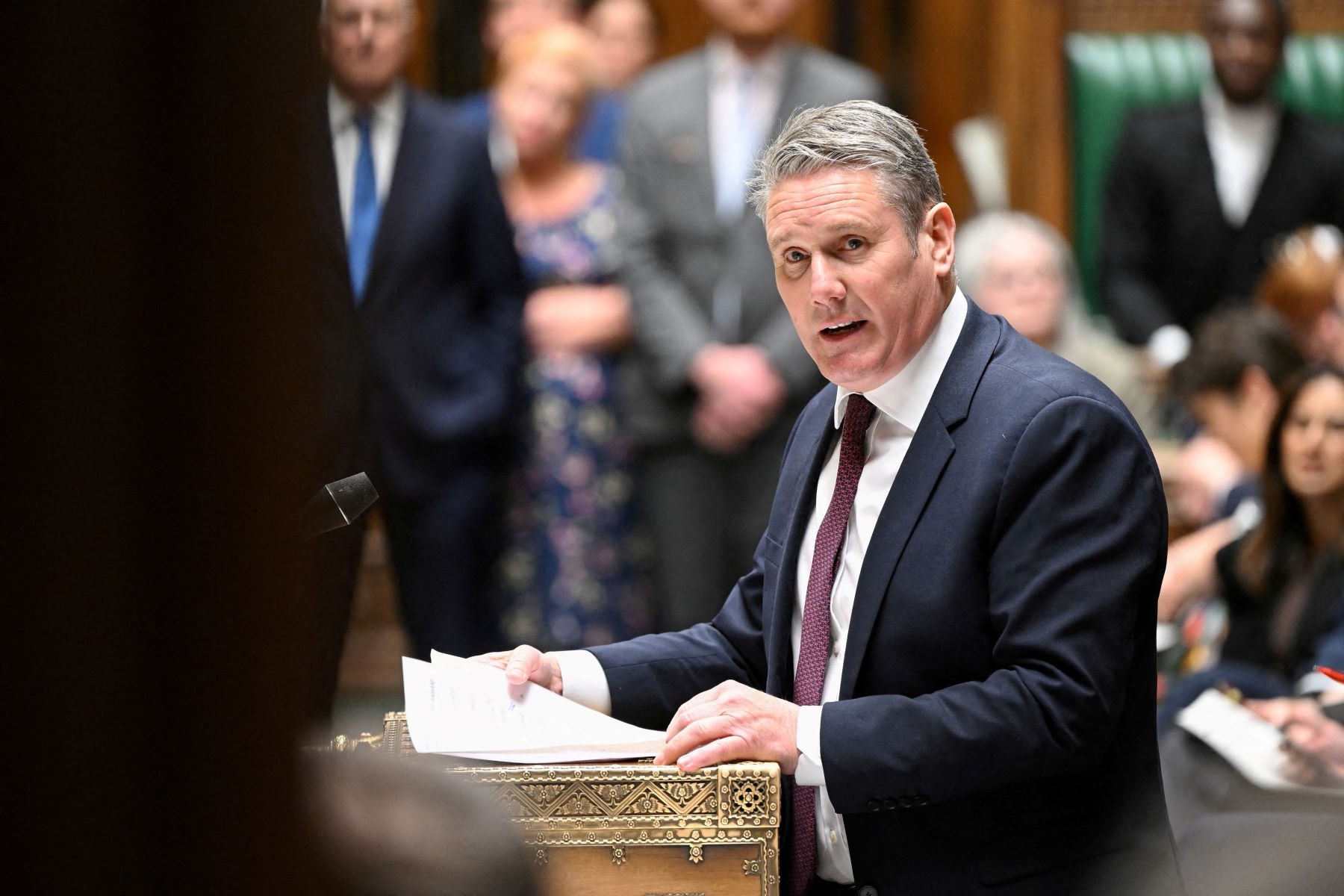
Keir Starmer, a name that resonates with many across the UK and beyond, stands as a figure of significant interest in contemporary politics. As the leader of the Labour Party, his journey from a distinguished lawyer to a prominent political leader is both inspiring and noteworthy. But what truly makes him tick? Beyond the public persona and political debates, there lies a wealth of fascinating facts about his life, beliefs, and career achievements. This post aims to shed light on 25 intriguing facts about Keir Starmer, offering a glimpse into the man behind the political mask. From his early life and career milestones to his personal interests and leadership style, get ready to discover the lesser-known aspects of one of Britain's most influential political figures.
Who is Keir Starmer?
Sir Keir Starmer is currently the Leader of the Labour Party in the United Kingdom, a position he has held since April 2020. Before his political career, he was a barrister and a public official, serving as the Director of Public Prosecutions (DPP) and the head of the Crown Prosecution Service (CPS) from 2008 to 2013. His legal career was marked by a commitment to human rights and a focus on reforming the criminal justice system.
- Born on September 2, 1962, in Southwark, London, Keir Starmer was named after Labour Party founder Keir Hardie.
- He attended Reigate Grammar School, a state grammar school, before going on to study law at the University of Leeds and furthering his legal education at St Edmund Hall, Oxford.
Starmer's Legal Career
Before entering politics, Starmer had a distinguished legal career, becoming a Queen's Counsel (QC) in 2002. His work primarily focused on human rights issues, taking on cases that ranged from employment law to death penalty challenges abroad.
- In 2007, he was involved in the legal team that fought to abolish the death penalty in the Eastern Caribbean and Belize.
- Starmer was appointed Director of Public Prosecutions (DPP) and head of the Crown Prosecution Service in 2008, where he served until 2013.
Transition to Politics
Starmer's transition from law to politics was driven by his desire to have a broader impact on society. He was elected as the Member of Parliament (MP) for Holborn and St Pancras in May 2015.
- As an MP, Starmer focused on Brexit, advocating for a second referendum and campaigning against a "no-deal" Brexit.
- He was appointed to the Labour Party's Shadow Cabinet in October 2016, serving as Shadow Secretary of State for Exiting the European Union until early 2020.
Leadership of the Labour Party
In April 2020, Starmer was elected Leader of the Labour Party, succeeding Jeremy Corbyn. His leadership has been characterized by efforts to move the party towards the center-ground of British politics and rebuild trust with the electorate.
- Starmer won the Labour leadership election with 56.2% of the vote in the first round.
- He has pledged to lead the Labour Party into a new era, focusing on unity and the values of social justice and equality.
Personal Life and Interests
Outside of his political and legal careers, Starmer leads a life filled with personal interests and commitments.
- He is married to Victoria Alexander, a solicitor, and they have two children together.
- Starmer is known to be a football fan, supporting Arsenal Football Club.
- His knighthood was awarded in 2014 for services to law and criminal justice, before he became an MP.
Contributions and Controversies
Like any public figure, Starmer's career has not been without its controversies and criticisms, alongside his contributions to law and politics.
- His tenure as DPP was marked by significant cases, including the decision not to prosecute police officers involved in the death of Ian Tomlinson during the G20 protests in 2009.
- However, he also initiated reforms in the CPS, including measures to improve the handling of cases involving sexual violence.
Starmer's Vision for the Future
Looking forward, Starmer has outlined his vision for the Labour Party and the UK, focusing on economic recovery post-COVID-19, addressing climate change, and improving public services.
- He has called for a "green economic recovery" from the COVID-19 pandemic, emphasizing job creation and environmental sustainability.
- Starmer has also advocated for greater investment in the National Health Service (NHS) and education to build a fairer society.
Challenges and Achievements
Leading a major political party is no small feat, and Starmer has faced his share of challenges and achievements since taking on the role.
- One of his first major challenges as Labour leader was addressing anti-Semitism within the party, for which he has taken a strong stance.
- Under his leadership, the Labour Party has seen a gradual improvement in opinion polls, narrowing the gap with the Conservative Party.
- Starmer has been vocal about the need for a more effective government response to the COVID-19 pandemic, criticizing the government's handling of the crisis.
Keir Starmer: A Man of Principle and Ambition
Starmer's journey from a human rights barrister to the leader of the Labour Party showcases his commitment to justice, equality, and a better future for the UK.
-
His legal background has heavily influenced his political approach, emphasizing the importance of rule of law and fairness.
-
Despite criticisms, Starmer remains focused on his goal to lead the Labour Party back to government, advocating for policies that support working families and address social inequalities.
-
Known for his calm and methodical approach, Starmer has been described as a unifying figure within the Labour Party.
-
His leadership style contrasts with that of his predecessor, aiming for a more moderate and pragmatic approach to politics.
-
Starmer's commitment to public service is evident in both his legal and political careers, driven by a desire to make a tangible difference in people's lives.
-
He has emphasized the importance of listening to the electorate and addressing their concerns, aiming to restore faith in the Labour Party as a viable alternative to the current government.
-
As the UK faces unprecedented challenges, Starmer's leadership will be crucial in navigating the Labour Party through these turbulent times, striving for a more equitable and prosperous future for all.
A Final Glimpse at Keir Starmer's World
We've journeyed through the twists and turns of Keir Starmer's life, uncovering facts that paint a vivid picture of the man behind the public persona. From his early days, marked by a commitment to justice, to his ascent within the Labour Party, Starmer's story is one of dedication, resilience, and a relentless pursuit of what he believes in. His contributions, both in law and politics, reflect a deep-seated desire to make a difference, to challenge the status quo, and to stand up for those without a voice. As we close this chapter, it's clear that Starmer's impact extends far beyond the courtroom or the corridors of power. His life's work continues to inspire and challenge us, reminding us of the power of conviction and the importance of fighting for a fairer society.
Was this page helpful?
Our commitment to delivering trustworthy and engaging content is at the heart of what we do. Each fact on our site is contributed by real users like you, bringing a wealth of diverse insights and information. To ensure the highest standards of accuracy and reliability, our dedicated editors meticulously review each submission. This process guarantees that the facts we share are not only fascinating but also credible. Trust in our commitment to quality and authenticity as you explore and learn with us.


